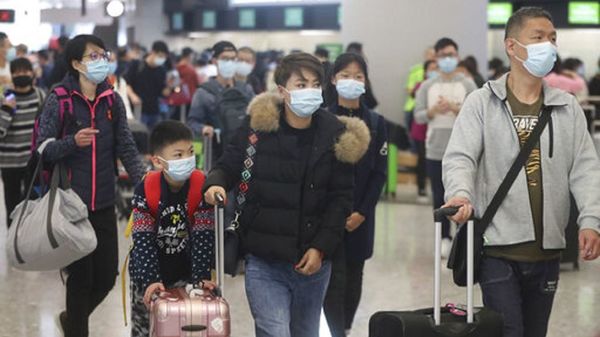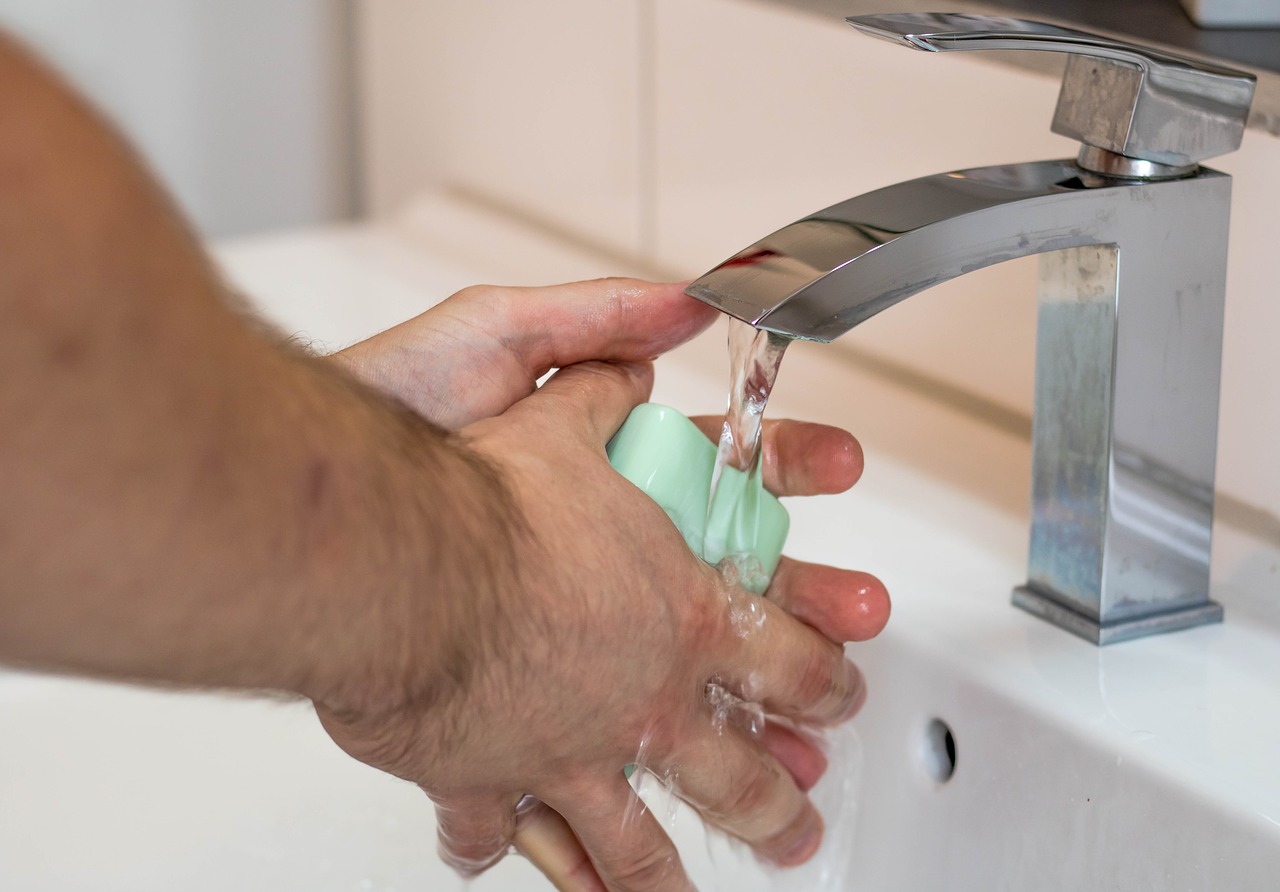How to Protect Yourself from Coronavirus: Top 7 Things to Know
In late 2019, a new form of the deadly virus, Coronavirus, is causing a global pandemonium. The new threat is being compared to the SARS outbreak of 2003. The SARS outbreak affected just over 8000 people globally.
However, the latest Coronavirus threat has already affected more than 10,000 people, with more than 213 deaths already being reported from China. More and more countries have started issuing travel advisories and lockdowns.
Most of the major countries in the world including the USA, France, Canada, Japan, Germany, UAE, Thailand, India, and Sri Lanka have confirmed cases of Coronavirus in their respective countries. The World Health Organization has categorized Coronavirus as a Global Health Emergency.
In the absence of any formative cure or vaccination, medical experts suggest some ways to protect yourself from Coronavirus. In this article, we will look at what is Coronavirus, where and how it emerged, and how you can protect yourself from the disease.
Contents
According to the World Health Organization.
“Coronavirus (CoV) are a large family of viruses that cause illness ranging from the common cold to more severe diseases such as Middle East Respiratory Syndrome and Severe Acute Respiratory Syndrome.”
However, the newest strand, one that, is currently affecting the world has been called ‘Novel’. This means that this new strain of coronavirus is completely unknown to humanity. There are no medicinal cures, or information, which is available on the new strain.
Coronavirus first hit the headlines when mysterious cases of pneumonia started being reported from the Chinese city of Wuhan in December 2019. Since then, the entire city of Wuhan and its neighboring areas have been put under quarantine.
Just to give you an estimate, the Chinese government has placed nearly 30 million people under quarantine. The symptoms of contracting the coronavirus are very similar to those of the common cold. This means that you are going to experience a running nose and eyes, flu-like conditions, mild to heavy fever, headache, and migraine among other things. People affected by the coronavirus will also experience sneezing and coughing.

One of the most dangerous elements of the composition of the Coronavirus is its ability to get transferred from animals to humans. Scientists are of the view that the virus originated in the port area of Wuhan. Here many animals are traded illegally.
It has been speculated that the animal market, which deals in birds, snakes, rabbits, and bats is the major origin point. Workers in the market were the first carriers of the disease. Whatever little research has been done as of now shows that the coronavirus strain shares a strong resemblance to snakes and bats.
In fact, virologists have ascertained that a 96% similarity in the coronavirus strains of bats and the recent outbreak. Bats were also responsible for another major outbreak of the 21st century- SARS.
The epicenter, the Wuhan Market was immediately closed on 1st January. However, by then, the infection had already spread. The disease assumed epidemic proportions when it spread from human to human as well. This became apparent when medical staff who were treating the patients for pneumonia also became affected by a coronavirus.
China, being one of the financial and economic epicenters of the world is bearing the brunt. Most nations across the world have issued travel advisories and banned travel to China. China’s airports are under lockdown and trade to and from the country has been put on hold. Most global corporations including Google, Facebook, and others have shut down their offices in China.
Countries all over the world are screening passengers arriving from China in airports and medical facilities. It is only when they have been cleared are they allowed to leave. Russia has already closed its borders with China amidst the outbreak.
Countries are also calling their citizens back from China on special flights. India has recently evacuated around 300 students from Wuhan in a 747 Air India flight with doctors and medical help. Trade, commerce, and diplomatic engagements have been temporarily stopped between China and other nations.
The country is under a self-imposed lockdown to prevent the disease from spreading any further. Billionaires like Alibaba Founder, Jack Ma have pledged millions of dollars in finding a vaccination for the disease.
The cure or vaccine for Coronavirus is not there. This means that people who do not want to contract the disease need to take preventive actions. In this section, we will list ten ways in which you can protect yourself from Coronavirus.
1. Wash your hands, face, and exposed skin areas thoroughly

The WHO and the CDC recommend that people should wash their hands for at least twenty seconds. Try using an antiseptic soap or an alcohol-based sanitizer to rinse your hands as often as possible.
It is important to keep your exposed skin areas as clean as possible. This should especially be done, before eating food or drinking water. By keeping your body clean through thorough rinsing, you can prevent germs and infections from sitting on your skin.
2. Use a Humidifier and take regular Hot Showers
Scientists and health experts suggest using a humidifier at all times to prevent yourself from coronavirus. It is also important to increase those hot showers and use a strong soap to keep your body absolutely clean at all times.
If you live in extremely hot conditions, you will have to take the pain if using the humidifier. It can be very difficult to take a hot shower in hot weather conditions. However. hot showers have been found to be very effective to combat the virus strain.
3. Drink plenty of water throughout the day-
Dry throat, irritation in the nasal cavity, and other symptoms are markers for the coronavirus. This is why it is important for you to keep drinking plenty of water and stay hydrated. The key is to release more and more toxins from your body.
By flushing out your body multiple times throughout the day, you will prevent the virus from establishing a foundation. It is also important to ask others in your family and friend circle to drink pure water and not contaminate water from anywhere.
4. Take rest and stay isolated from outside surroundings
Being an airborne virus that has the potential to be spread from person-to-person, it is better that you stay indoors. This is probably the best time for cashing in on those leaves and work-from-home days.
The potential of the coronavirus to spread from person to person means that it is important to stay isolated. As not a lot of information is available on the virus, taking a rest and working from home is a good way to protect yourself.
5. Do not touch your face, nose, or mouth without cleaning your hands
Humans have a tendency to rub our eyes, touch our faces, without using clean hands. Scientists recommend that people should not touch themselves unless they have washed their hands. This means that you should make it a habit not to touch the exposed skin on your body.
This is because the coronavirus has a very similar composition to the common cold infection. It is also transmitted from one human being to another in the same fashion as a cold.
6. Stay home if you are sick and cover your mouth when you sneeze or cough
If you are experiencing any of the symptoms of the common cold, it is important that you stay indoors. It is equally important that you do not mix with others or frequent public places where many people are present.
Likewise, if you feel the need to cough or sneeze, please use a handkerchief or a tissue. Avoid human contact under any circumstances in this situation. People must ensure that they do their bit in not helping spread the global health emergency.
Scientists and health experts recommend using the same medicines as you do for the common cold. This is because the composition and breakup of the coronavirus are similar to that of a common cold infection.
However, please bear in mind that aspirin should not be given to children at all costs. You can try mild paracetamols and other medications to help improve the cold and flu-like conditions.
Conclusion
Until now, Coronavirus has not yet been labeled as an air-borne disease. This means that you can still use masks to protect yourself. However, masks will be rendered useless once the disease goes airborne.
By following the above seven points, you can protect yourself from coronavirus. The virus is spreading rapidly and has assumed a global nature. Many countries and international organizations continue to experience and take precautionary steps.
There are still many important details about the virus that is still practically unknown. It is important to be aware and take preventive actions based on what is already in the public domain. Learn more on how scientists study these viruses and illnesses through the gain of function research.
Read Also:



